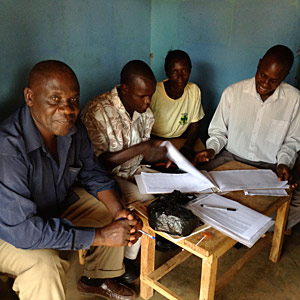 Researchers from the Department of Pathology at the University of Cambridge have published a cutting-edge study showing that village social networks determine how many people receive treatment from community (lay) medicine distributors in mass drug administration (MDA).
Researchers from the Department of Pathology at the University of Cambridge have published a cutting-edge study showing that village social networks determine how many people receive treatment from community (lay) medicine distributors in mass drug administration (MDA).
Over 1.9 billion people worldwide, who mostly reside in poor communities of low-income countries, require treatment through MDA. MDA is the en masse distribution of preventive chemotherapies to treatment human helminthiases. Infections treated through MDA—often the only treatment strategy—include schistosomiasis, soil-transmitted helminths, onchocerciasis (river blindness), lymphatic filariasis (elephantiasis), and trachoma.
Lay medicine distributors are not only responsible for the treatment of individuals eligible for MDA within their village, but also nearly all community-based health interventions.
This work is part of a larger research programme in Uganda, led by Dr Goylette Chami and the Ugandan Ministry of Health, which combines computational approaches and field biology to improve the treatment of schistosomiasis and soil-transmitted helminths.
The paper is published in the journal Nature Communications. DOI: 10.1038/s41467-017-01499-z.

